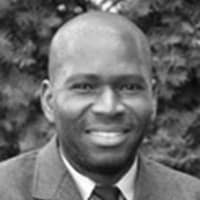By Ted Snider
In 2008, William Burns, who is now Biden’s director of the CIA but was then ambassador to Russia, warned that “Ukrainian entry into NATO is the brightest of all redlines for the Russian elite (not just Putin).” He warned Secretary of State Condoleezza Rice that “I have yet to find anyone who views Ukraine in NATO as anything other than a direct challenge to Russian interests.”
Short even of expansion into Ukraine, Burns called NATO expansion into Eastern Europe “premature at best, and needlessly provocative at worst.” If it came to Ukraine, Burns warned, “There could be no doubt that Putin would fight back hard.”
But Burns was not the first Russian expert to flash that warning sign to the White House. In 1990, as the Soviet Union broke apart like a jigsaw puzzle into separate countries, the US and NATO were at a crucial crossroads confronted with two future-changing choices. They could put the pieces of the puzzle back together in one inclusive picture of an integrated world that draws no new lines across Europe, welcomes Russia in, transcended blocs, and creates a comprehensive European security structure, or they could attach the newly loosed pieces to NATO, exclude and isolate Russia and push a swollen NATO right up against Russia’s borders.
The US and NATO passed up a historic opportunity for cooperation and chose the latter. A pantheon of Russian experts bemoaned the lost chance and warned urgently against it. President Clinton’s secretary of defense, Bill Perry, called it “tragic” because “we had the opportunity in the 1990s to build a long-lasting cooperative relationship with Russia.”
A legion of the most knowledgeable and experienced US officials warned against that lost opportunity because, even then, they knew two things: that leaving Russia out of the EU and out of the new security arrangement and advancing on its borders would existentially threaten Russia’s security interests and that Russia’s red line was Ukraine.

Jonas E. Alexis has degrees in mathematics and philosophy. He studied education at the graduate level. His main interests include U.S. foreign policy, the history of the Israel/Palestine conflict, and the history of ideas. He is the author of the new book Zionism vs. the West: How Talmudic Ideology is Undermining Western Culture. He teaches mathematics in South Korea.
ATTENTION READERS
We See The World From All Sides and Want YOU To Be Fully InformedIn fact, intentional disinformation is a disgraceful scourge in media today. So to assuage any possible errant incorrect information posted herein, we strongly encourage you to seek corroboration from other non-VT sources before forming an educated opinion.
About VT - Policies & Disclosures - Comment Policy




